WITNESS RADIO MILESTONES
Africa’s growth lies with smallholder farmers
Published
8 years agoon
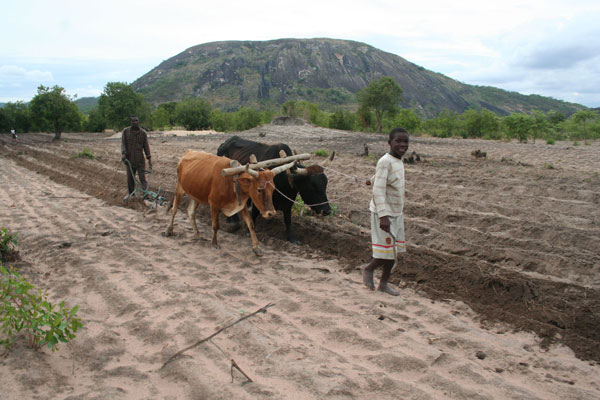
As the world’s population surges towards nine billion by midcentury, food production has failed to keep pace, creating rising food shortages and a global food crisis ahead, according to the United Nations. To avoid mass starvation, the world needs to produce 70% more food by 2050.
The greatest potential to deliver that growth exists in Africa. The African continent is home to 25% of the world’s agricultural land. Yet it produces just 10% of the world’s food. That compares with China, which has just 10% of the world’s agricultural land, but produces 20% of the global food supply.
If Africa can now rise to the challenge of upgrading its agricultural output, it will open the way to a takeoff in GDP, greater youth employment, and the potential of positive trade balances and rising currencies.
Yet, the continent faces two profound issues in delivering its own agricultural turnaround, with its agricultural industry both rural and fragmented and built upon smallholder farmers. It is the continent’s rural areas that have been most deprived of resources and investment: with the straight-line consequence that the continent’s core industry continues to under-perform, and under-perform badly.
The allure of city living has left rural areas neglected and strained Africa’s urban infrastructure and services, including health, water and sanitation, creating rising social problems and competition for city space. Indeed, Africa is now the fastest urbanising continent in the world, with 60% of all Africans forecast to be living in cities by 2050, according to United Nations Habitat.
But urban areas are dependent on rural populations for food. Moreover, agriculture holds more power in creating youth employment than any other sector, at a time when 10 million youth are entering the labour market each year in Africa, according to the 2015 Africa Agriculture Status Report.
In late April this year, at the G20 Conference in Germany, panelists at the ONE World no hunger meeting powerfully demonstrated the importance of attracting youth to the agricultural sector.
Rural youth are the future of the sector, with the capacity for innovation and entrepreneurship. Yet their participation has been hindered by the perception that the sector is unattractive due to risks, costs, low-profitability and agriculture’s labour intensive nature.
Additionally, rural youth have limited access to educational programs that provide agricultural skills, often limited access to land, and a lack of financial services tailored to their needs, as well as poor infrastructure and utilities.
The outcome of the ONE World no hunger meeting was the Berlin Charter, which seeks to create opportunities for the younger generation and women in the rural world by mapping out a model for rural development to achieve food security, long-term jobs and improved livelihoods.
It calls on governments to put in place agricultural, nutrition and anti-poverty policies to “lift at least 600 million people out of hunger and undernutrition” and “cut youth underemployment at least by half” by 2025. The Charter with a core focus on smallholder farmers, was presented to the G20 leaders at their meeting in July in Hamburg.
Agriculture accounts for 32% of Africa’s GDP and employs more than 60% of the continent’s total labour force. But in order to realise its full potential, the political and economic environment needs to be conducive for smallholder farmers, who make up 70% of the sub-Saharan Africa population. With smallholder output hampered by insecurity of land tenure and unequal access to land, land policy formulation and reforms are critical in Africa to in order to boost agricultural production. Rwanda has provided a benchmark in this, with over 10 million land parcels now titled and owned individually.
Other problems smallholder farmers face include limited access to markets, finance, high-yielding seeds, farm inputs and mechanisation, which, invariably, lead to low levels of productivity. External shocks such as climate change have further hampered agricultural production.
African countries urgently need to support smallholder farmers in order to capture the continent’s $300 billion food market – projected to be worth $1 trillion by 2030. At present, only 5% of Africa’s imported cereals come from other African countries, with intra-African trade running consistently at around 15% of Africa’s total trade — which is amongst the lowest intra-regional trade levels in the world (UNECA). In fact, African governments have stepped-up efforts to transform agriculture over the last decade, delivering often exceptional results.
Ethiopia, for instance, has invested in extension workers, rural roads and modern market-building enabling cereal production to increase and increasing the number of calories its rural people consume by roughly 50%. As a result, Ethiopia is now reducing poverty at the rate of 4% a year (ONE.org, 2014).
Burkina Faso, a landlocked country, has also made remarkable progress in poverty reduction and food security with government investment in the sector averaging 17% of total expenditure for the past 10 years (ONE.org, 2014). Ghana’s agricultural transformation agenda has, likewise, remained a top priority for successive governments, spurring reforms and heavy investment.
Yet, as these early investments now move these particular economies up the growth ladder, other African governments have been slower to prioritise agriculture, despite the demonstrable financial gains and growing consequences in protest on food shortages.
As the G20 now reviews its strongest commitment yet to African agriculture and rural development, African governments and investors, likewise, need to heed the clarion call to action, and move agricultural reform and smallholders to the centre of the continent’s political and economic debate.
Related posts:
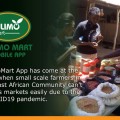
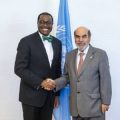 FAO targets agriculture investments to end hunger In Africa
FAO targets agriculture investments to end hunger In Africa
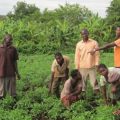 Access to land, capital hampering youth’s involvement in agri-business
Access to land, capital hampering youth’s involvement in agri-business
 China-Africa: “Huge” ag cooperation potential
China-Africa: “Huge” ag cooperation potential
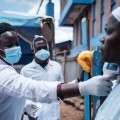 AU warns cost of COVID-19 pandemic could be long-lasting in Africa
AU warns cost of COVID-19 pandemic could be long-lasting in Africa

You may like
-


A tree planting Chinese Company, Formosa Limited in fresh illegal land eviction…
-
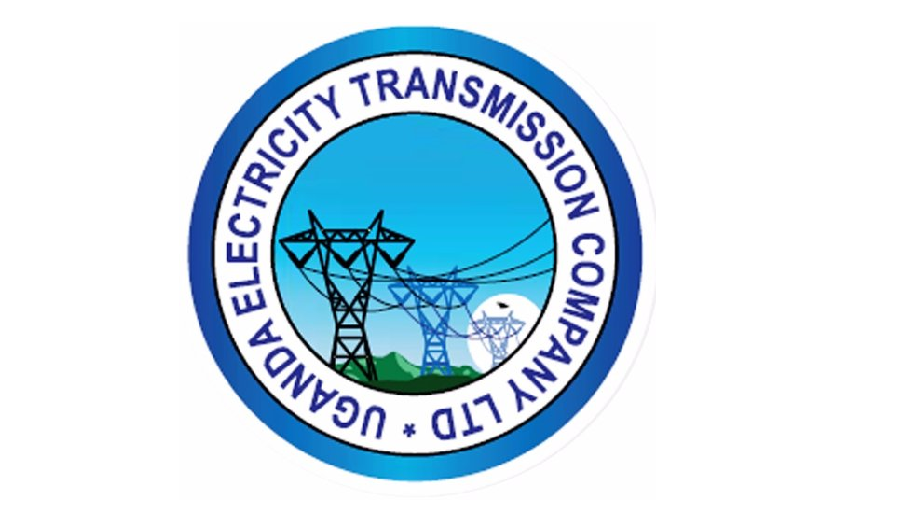

Electricity Transmission Company holds titles in Masaka as residents point to foul play
-
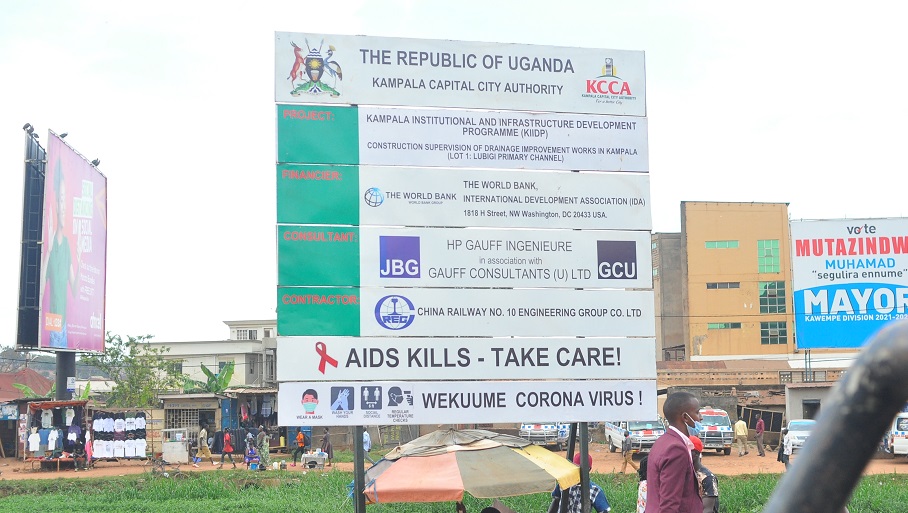

The World Bank and its partners flout business and human rights standards to evict hundreds of families
-
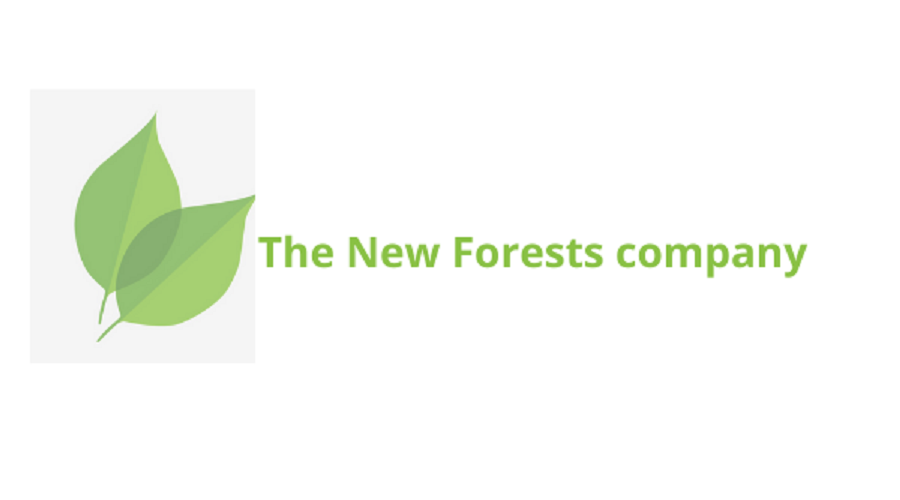

The New Forest Company is engaged in fresh tactics to intimidate affected community it evicted 10 years ago…
-


A long journey to freedom: Trial of 10 community members in Mityana flops
-
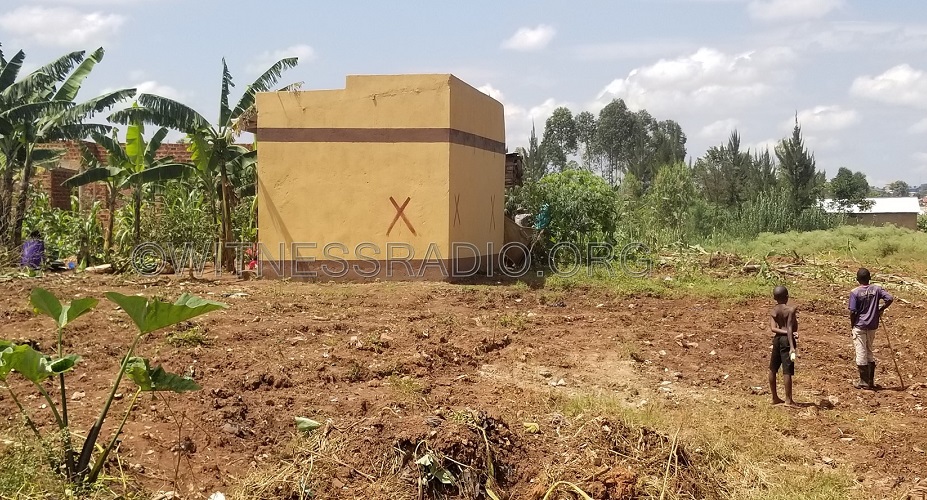

Tension as more than 300 poor families are being evicted by a World Bank-funded project…
MEDIA FOR CHANGE NETWORK
Uganda moves toward a Bamboo Policy to boost environmental conservation and green growth.
Published
2 weeks agoon
January 21, 2026
By Witness Radio team.
Uganda’s move to develop a national bamboo policy aims to boost environmental conservation and create green jobs, addressing the country’s urgent unemployment issues among the working class.
Bamboo is a critical tool in fighting climate change due to its rapid growth, high carbon sequestration capacity, and ability to produce 35% more oxygen than equivalent trees. As a fast-growing, renewable resource, it restores degraded land, provides sustainable materials that replace emission-intensive products like concrete, and offers a resilient, low-carbon bioenergy source.
Bamboo’s potential is outlined in the existing National Bamboo Strategy. Still, stakeholders stress that a formal policy involving entrepreneurs, farmers, and processors is essential to remove regulatory uncertainty and foster sector growth.
“The strategy is a good document, but it was developed largely through desk research. It did not fully involve entrepreneurs, farmers, and processors who are already working in the bamboo industry,” said Sjaak de Blois, chairman of Bamboo Uganda, encouraging stakeholders to see their role as vital.
The bamboo policy is currently at an early consultative stage, with no draft yet submitted to the cabinet or parliament. Recent consultations brought together representatives from eight government ministries, private-sector bamboo actors, and development partners to begin aligning the strategy with practical regulatory needs.
“What we have now is the starting point,” De Blois mentioned. “The next step is to take the strategy and make it more practical, more market-driven, and more Ugandan. The next step is to move from having a plan to adopting a policy.
Bamboo currently falls under several regulatory frameworks, with no single authority overseeing the sector. The policy push is being driven in part by Bamboo Uganda, a membership-based organization bringing together bamboo farmers and processors, among others. The organization aims to play a coordinating role similar to that historically played by the Uganda Coffee Development Authority in the coffee sector.
“If you want to make a sector meaningful for a country, you need coordination. Coffee became what it is because of an institution that aligned farmers, traders, exporters, and regulators. Bamboo needs the same kind of coordination.” He said.
The policy process is supported by the Belgian development agency, which is funding consultations and facilitating dialogue between the government and the private sector.
Industry players say the absence of clear regulations has constrained investment despite growing demand.
“At the moment, bamboo is everywhere and nowhere at the same time. As a farmer, you talk to forestry, as a charcoal producer, you talk to energy, as a builder, you talk to works. There is no single framework that enables the industry to function.” De Blois added.
Supporters of the policy argue that bamboo could play a significant role in environmental conservation. Bamboo grows rapidly, regenerates after harvesting, and can be harvested annually for decades, reducing pressure on natural forests.
According to Global Forest Watch (GFW), Uganda lost 1.2 million hectares of tree cover between 2001 and 2024, representing a 15% decline from the 2000 baseline. Bamboo has been identified as a key species for restoration.
“One acre of bamboo that is harvested sustainably can prevent the destruction of hundreds of acres of natural forest,” De Blois said. “If we get this right, bamboo can help reverse deforestation rather than contribute to it.”
Ms. Susan Kaikara, from the Ministry of Water and Environment, emphasized bamboo’s potential to drive Uganda’s green-growth agenda.
“Establishing a coherent national policy framework will strengthen coordination, inspire investment, and unlock bamboo’s full potential as a pillar of Uganda’s green economy,” she said.
Uganda’s charcoal market alone is estimated to be worth hundreds of millions of dollars annually, much of it supplied through unsustainable wood harvesting. Industry actors say certified bamboo charcoal plantations could offer a cleaner alternative.
“If they allow us to certify bamboo charcoal plantations, then we can get a trade license to compete or to work together with the existing market. We will reverse deforestation. We would enter an industry of about 500,000 hectares, creating smart, green jobs. We can digitalize them to make them attractive through bamboo agroforestry. So again, those things need a policy.” He adds.
Bamboo is also viewed as a climate-friendly crop due to its high capacity for carbon sequestration. Its rapid growth enables it to absorb large amounts of carbon dioxide, while its extensive root system improves soil structure and increases long-term carbon storage.
“When you look at carbon sequestration, bamboo offers several advantages. Residues from harvested bamboo can be converted into biochar, locking carbon into the soil for long periods. When you also see the sequestration per acre compared to many other trees, it is five or six times higher. So, we sequester a lot,” De Blois said
Stakeholders say that if the policy process progresses as planned, bamboo could emerge as one of Uganda’s key green growth sectors within the next decade.
“Policy making takes time. But what is important is that we have started the conversation with all the right ministries in the room. From here, it is about taking steady, practical steps.” He concluded.
Related posts:

 As Uganda awaits the Energy Efficiency and Conservation law, plans to develop a five-year plan are underway.
As Uganda awaits the Energy Efficiency and Conservation law, plans to develop a five-year plan are underway.
 REC25 & EXPO Ends with a call on Uganda to balance conservation and livelihood
REC25 & EXPO Ends with a call on Uganda to balance conservation and livelihood
 Africa’s growth lies with smallholder farmers
Africa’s growth lies with smallholder farmers
 Green Resources’ forestry projects are negatively impacting on local communities – donor
Green Resources’ forestry projects are negatively impacting on local communities – donor
WITNESS RADIO MILESTONES
A Global Report reveals that Development Banks’ Accountability Systems are failing communities.
Published
2 months agoon
December 4, 2025
By Witness Radio team.
For decades, development projects have been funded to address some of the World’s most pressing problems, including poverty, wildlife conservation, and climate change. However, what unfolds on the ground is sometimes the opposite of development. Instead of benefits, these projects have often harmed the very people they are supposed to support.
The effort to address such harm has led to the establishment of Independent Accountability Mechanisms (IAMs) by various development banks. Yet, communities affected by these projects often face betrayal by national court systems, leaving them feeling overlooked and vulnerable, emotions that underscore the urgent need for effective justice.
According to experts in development financing, since the early 1990s, development banks have sought to address and mitigate harm through IAMs—non-judicial grievance mechanisms that provide a direct avenue for impacted communities to raise concerns, engage with project implementers, and obtain remedies for the harm they have experienced.
The study, conducted by Accountability Counsel and titled Accountability in Action or Inaction? An Empirical Study of Remedy Delivery in Independent Accountability Mechanisms shows that while IAMs exist, their relevance has fallen short, underscoring the urgent need for reform to restore community trust and hope.
In compiling the report, researchers reviewed 2,270 complaints across 16 IAMs and conducted 45 interviews covering 25 cases globally.
The report reveals a persistent gap between the promise of remedies and their realization, highlighting that only 15% of closed complaints led to commitments, and just 10% achieved full completion, underscoring the urgent need for effective remedies for communities.
The findings highlight ongoing challenges, including inadequate implementation, limited monitoring, and persistent power imbalances, which continue to block communities from accessing meaningful remedies and demand immediate reform.
“The consequences of these institutional gaps are severe. As these cases show, institutional silence can exacerbate risk, while meaningful intervention can help de-escalate it.” The Report adds.
Uganda is among the countries where communities have sought justice using these accountability mechanisms. Between 2006 and 2010, communities in one of the districts of Uganda were brutally evicted by the UK-based Company, which was growing trees in the area.
The company was formerly an investee of the Agri-Vie Agribusiness Fund, a private equity fund supported by the International Finance Corporation (IFC), the private sector arm of the World Bank Group. The community filed a Complaint with the IFC’s accountability mechanism, the Compliance Advisor Ombudsman (CAO).
“We complained to this body in 2011, hoping for justice, but over 15 years later our people are still struggling, living miserably, some without homes,” a community land and environmental defender told the Witness Radio team.
According to the affected residents, the CAO process did not lead to success or meaningful compensation, as they had hoped.
Between 2013 and 2014, the communities, with support from the CAO, signed a final agreement with the Company to address the harm. Among other commitments, this included resettlement of the affected communities.
In its 28-page report published in 2015 titled: A Story of Community-Company Dispute Resolution in Uganda, the CAO wrote,” With the agreements concluded, implementation is gathering pace. As agreed, the company has begun extending development assistance to both cooperatives, and the process of restoring and enhancing livelihoods has commenced.
The first step taken by both cooperatives was to acquire land. In late 2013, the Mubende Cooperative bought 500 acres of ‘fertile agricultural land’ in the Mubende district. Their vision was to allocate a certain percentage of the land for resettlement, with the remainder utilized for farming projects.
Reports from the ground indicate that communities remain dissatisfied with the process, claiming it failed to address their concerns fully and highlighting the urgent need for more effective remedy systems.
“When you say that people are well, it is really a total lie. Many people were never compensated or resettled. Even those who got a portion of land say they have never seen a fertile land—I have never seen it, because people are living or cultivating on rocky, infertile lands,” the defender further revealed.
The struggle faced by the Ugandan community is not unique. Their experience mirrors what the Accountability Counsel report identifies worldwide. Despite registering more than 2000 complaints by communities harmed by bank-financed projects globally, there has been no comprehensive system-wide analysis of whether and how often these mechanisms deliver meaningful remedies, defined as tangible, material outcomes that repair harm and improve lives.
In addition to the slow success of such IAMs, the report notes that, across interviews covering 25 complaints, 84% referenced retaliation, violence, or threats of violence-an alarming indicator of the risks faced by communities seeking justice, demanding immediate attention and action.
“Government officials and company representatives were frequently implicated in efforts to suppress dissent. This not only reduces the likelihood of achieving a substantial remedy, but also suppresses the willingness of community members to speak honestly and openly about Complaint outcomes.” The report further adds,
Further, it reveals that communities described a range of retaliatory tactics, including physical clashes, arrests, detentions, fatalities, intimidation and harassment, death threats, and anonymous warning letters, among others.
“Remedy must be reimagined not as a peripheral concern but as a core responsibility of development institutions. It must be adequately resourced, independently monitored, and centered around the needs and voices of affected people,” the report adds.
The report recommends that development banks and IAMs establish a Remedy Framework with clear standards to ensure remedies are timely, adequate, and community-centered, and to encourage stakeholders to prioritize systemic reform for better justice outcomes.
The report also urges development banks and their accountability mechanisms to make remedies a foundational element of responsible finance. Adopting institutional frameworks that prioritize redress, empowering IAMs to oversee and enforce commitments, and incorporating the outcomes of IAM processes into project evaluations and institutional learning.
Related posts:

 Banks have given almost $7tn to fossil fuel firms since Paris deal, report reveals
Banks have given almost $7tn to fossil fuel firms since Paris deal, report reveals
 Opinion: USAID needs an independent accountability office to improve development outcomes
Opinion: USAID needs an independent accountability office to improve development outcomes
 Communities Under Siege: New Report Reveals World Bank Failures in Safeguard Compliance and Human Rights Oversight in Tanzania
Communities Under Siege: New Report Reveals World Bank Failures in Safeguard Compliance and Human Rights Oversight in Tanzania
 Oxfam Report 2011: When Indigenous communities named Rwanda nationals by investor to run away from corporate accountability
Oxfam Report 2011: When Indigenous communities named Rwanda nationals by investor to run away from corporate accountability
MEDIA FOR CHANGE NETWORK
Young activists fight to be heard as officials push forward on devastating project: ‘It is corporate greed’
Published
5 months agoon
August 27, 2025
“We refuse to inherit a damaged planet and devastated communities.”
Youth climate activists in Uganda protesting the East African Crude Oil Pipeline, or EACOP, are frustrated with the government’s response to their demonstration as the years-long project moves forward.
According to the country’s Daily Monitor, youth activists organized with End Fossil Occupy Uganda took to the streets of Kampala in early August to protest EACOP. The pipeline, under construction since about 2017 and now 62 percent complete, is set to transport crude oil from Uganda’s Tilenga and Kingfisher fields through Tanzania to the Indian Ocean port of Tanga by 2026.
Activists noted the devastating toll, with group spokesperson Felix Musinguzi saying that already around 13,000 people “have lost their land with unfair compensation” and estimating that around 90,000 more in Uganda and Tanzania could be affected. End Fossil Occupy Uganda has also warned of risks to vital water sources, including Lake Victoria, which it says 40 million people rely on.
The group has been calling on financial institutions to withdraw funding for the project. Following a demonstration at Stanbic Bank earlier in the month, 12 activists were arrested, according to the Daily Monitor.
Some protesters were seen holding signs reading “Every loan to big oil is a debt to our children” and “It’s not economic development; it is corporate greed.”
Meanwhile, the regional newspaper says the government has described the activist efforts as driven by foreign actors who mean to subvert economic progress.
EACOP’s site notes that its shareholders include French multinational TotalEnergies — owning 62 percent of the company’s shares — Uganda National Oil Company, Tanzania Petroleum Development Corporation, and China National Offshore Oil Corporation.
The wave of young people taking action against EACOP could be seen as a sign of growing public frustration over infrastructural projects that promise economic gain while bringing harm to local communities and ecosystems. Activists say residents face costly threats from pipeline development, such as forced displacement and the loss of livelihoods.
Environmental hazards to Lake Victoria could also disrupt water supplies and food systems, bringing the potential for both financial and health impacts. Just 10 years ago, an oil spill in Kenya caused a humanitarian crisis. The Kenya Pipeline Company reportedly attributed the spill to pipeline corrosion, which led to contamination of the Thange River and severe illness.
The EACOP project has already locked the region into close to a decade of development, and concerns about the pipeline and continued investments in carbon-intensive systems go back just as long. Youth activists, as well as concerned citizens of all ages, say efforts to move toward climate resilience can’t wait. “As young people, we refuse to inherit a damaged planet and devastated communities,” Musinguzi said, per the Monitor.
Source: The Cool Down
Related posts:

 Put people above profits – Climate Activists urge Total to defund EACOP
Put people above profits – Climate Activists urge Total to defund EACOP
 EACOP: The number of activists arrested for opposing the project is already soaring in just a few months of 2025
EACOP: The number of activists arrested for opposing the project is already soaring in just a few months of 2025
 EACOP activism under Siege: Activists are reportedly criminalized for opposing oil pipeline project in Uganda.
EACOP activism under Siege: Activists are reportedly criminalized for opposing oil pipeline project in Uganda.
 The East African Court of Justice fixes the ruling date for a petition challenging the EACOP project.
The East African Court of Justice fixes the ruling date for a petition challenging the EACOP project.

Why govt is launching a comprehensive digital land registry

Witness Radio and Seed Savers Network are partnering to produce radio content to save indigenous seeds in Africa.

Evicted from their land to host Refugees: A case of Uganda’s Kyangwali refugee settlement expansion, which left host communities landless.

Women environmental rights defenders in Africa are at the most significant risk of threats and attacks – ALLIED New report

Will Uganda’s next government break the land-grabbing cycle?

Women environmental rights defenders in Africa are at the most significant risk of threats and attacks – ALLIED New report

Swedish pension fund drops TotalEnergies amid rising EACOP risks

Land tenure security as an electoral issue: Museveni warns Kayunga land grabbers, reaffirms protection of sitting tenants.

Innovative Finance from Canada projects positive impact on local communities.
Over 5000 Indigenous Communities evicted in Kiryandongo District
Petition To Land Inquiry Commission Over Human Rights In Kiryandongo District
Invisible victims of Uganda Land Grabs
Resource Center
- Land And Environment Rights In Uganda Experiences From Karamoja And Mid Western Sub Regions
- REPARATORY AND CLIMATE JUSTICE MUST BE AT THE CORE OF COP30, SAY GLOBAL LEADERS AND MOVEMENTS
- LAND GRABS AT GUNPOINT REPORT IN KIRYANDONGO DISTRICT
- THOSE OIL LIARS! THEY DESTROYED MY BUSINESS!
- RESEARCH BRIEF -TOURISM POTENTIAL OF GREATER MASAKA -MARCH 2025
- The Mouila Declaration of the Informal Alliance against the Expansion of Industrial Monocultures
- FORCED LAND EVICTIONS IN UGANDA TRENDS RIGHTS OF DEFENDERS IMPACT AND CALL FOR ACTION
- 12 KEY DEMANDS FROM CSOS TO WORLD LEADERS AT THE OPENING OF COP16 IN SAUDI ARABIA
Legal Framework
READ BY CATEGORY
Newsletter
Trending
-

 MEDIA FOR CHANGE NETWORK1 week ago
MEDIA FOR CHANGE NETWORK1 week agoWomen environmental rights defenders in Africa are at the most significant risk of threats and attacks – ALLIED New report
-

 MEDIA FOR CHANGE NETWORK2 weeks ago
MEDIA FOR CHANGE NETWORK2 weeks agoUganda moves toward a Bamboo Policy to boost environmental conservation and green growth.
-

 FARM NEWS1 week ago
FARM NEWS1 week ago200 farmers demonstrate at parliament, worried about new seed monopoly
-

 MEDIA FOR CHANGE NETWORK4 days ago
MEDIA FOR CHANGE NETWORK4 days agoEvicted from their land to host Refugees: A case of Uganda’s Kyangwali refugee settlement expansion, which left host communities landless.
-

 MEDIA FOR CHANGE NETWORK4 days ago
MEDIA FOR CHANGE NETWORK4 days agoWitness Radio and Seed Savers Network are partnering to produce radio content to save indigenous seeds in Africa.
-

 MEDIA FOR CHANGE NETWORK1 day ago
MEDIA FOR CHANGE NETWORK1 day agoWhy govt is launching a comprehensive digital land registry